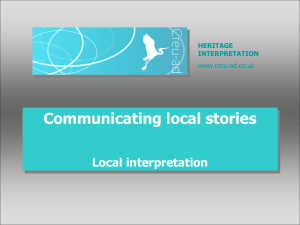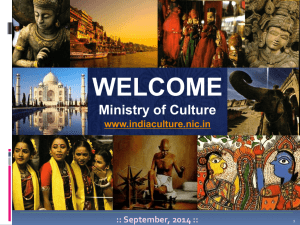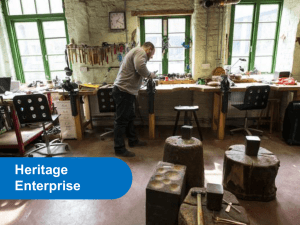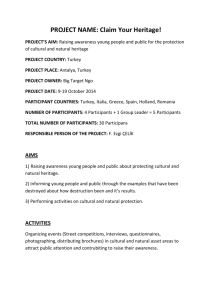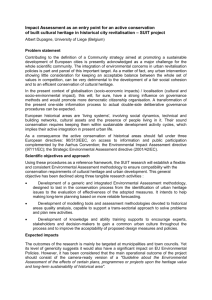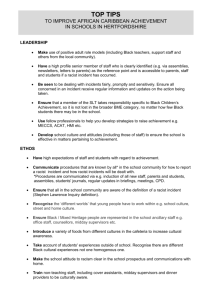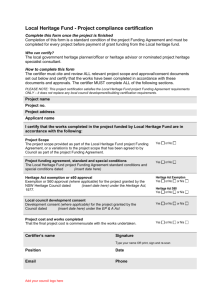File - Krystal Barlow
advertisement
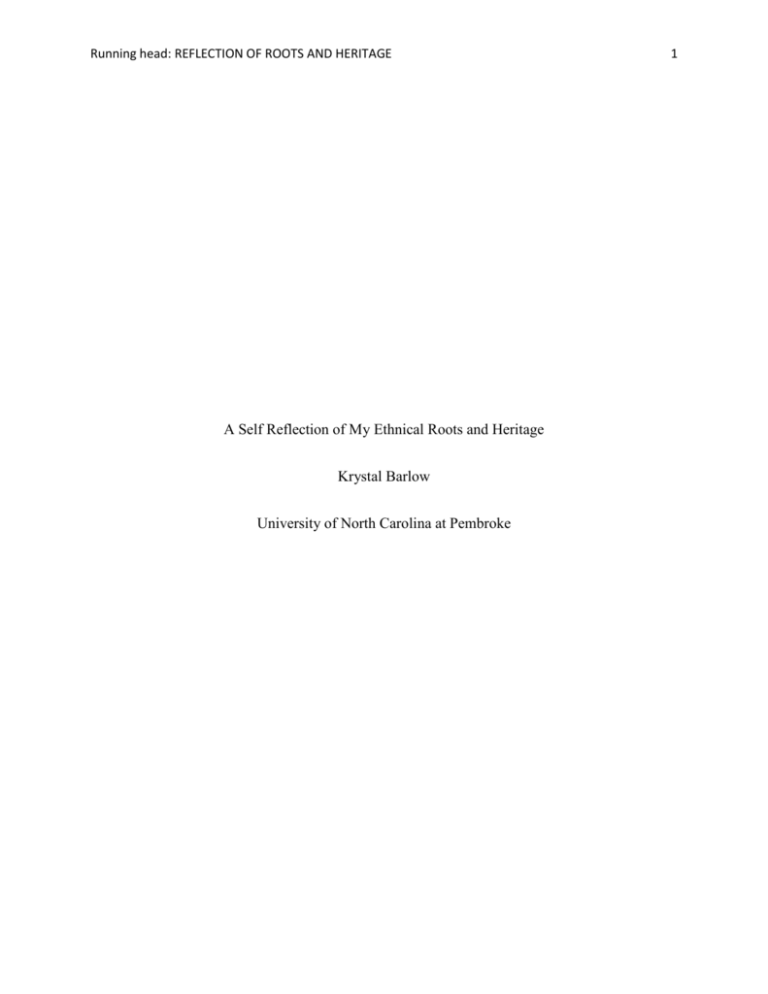
Running head: REFLECTION OF ROOTS AND HERITAGE A Self Reflection of My Ethnical Roots and Heritage Krystal Barlow University of North Carolina at Pembroke 1 REFLECTION OF ROOTS AND HERITAGE Abstract This paper identifies the different ethnicities that make up my background and also provides details of my family’s history and their life experience. In this paper, I elaborate on what has made me who I am and what has enlightened me to come to my personal identity. Diversity is mentioned to reflect experiences that I have had and experiences that I will have when I become a professional social worker. 2 REFLECTION OF ROOTS AND HERITAGE Myself Mother Grandmother Grandfather Father Grandmother Grandfather 3 Ethnic Heritage consists of English, Scottish, Irish and Welsh. Race is Caucasian. Ethnic heritage consists of English, Irish and Scottish. Race is Caucasian. Ethnic heritage consists of English and Scottish. Race is Caucasian. Ethnic heritage consists of English, Irish and Scottish. Race is Caucasian. Ethnic Heritage consists of English and Welsh. Race is Caucasian. Ethnic Heritage consists of Welsh. Race is Caucasian. Ethnic Heritage consists of English. Race is Caucasian. Heritage is something special that cannot be taken away, it can only be given. For many people, heritage becomes lost because it is not truly understood. As for me, I never acknowledged or embraced my ethnicity and heritage until now. Through tracing my roots and gathering details from my family’s experiences, I now have a sense of self--a true identity. As I began drawing from my family’s details, I concluded that my ethnicity consisted of English, Irish, Scottish, and Welsh. I was very intrigued by my findings. According to U.S. State Department (2005), English immigrants endured the trip to America to break free of political and religious oppression. English settlers also fled England due to lack of job opportunity (U.S. State Department, 2005). Through research I am now aware that my Irish ancestors had struggles as well, very similar to that of the English. As noted by Kenny (2008), Irish immigrants greatly impacted America by not only offering diversity, but cultural pluralism. In comparison to my Irish ancestors, the culture of my Scottish ancestors was merely based on personalization rather than attempting to seek tangible benefits from it (McCarthy, 2006). As for my Welsh ancestry, I REFLECTION OF ROOTS AND HERITAGE 4 can only gather that they came to America for many of the same reasons as my other ancestors. What is known about my Welsh background, stated by Wolensky (2010), is that my ancestors used their full potential and used the available cultural resources to become successful in America. By furthering an examination of my own family’s ethnic and cultural history, I have noted the linkage of my English, Scottish and Welsh ancestry. As a child growing up in America, I failed to recognize the meaning and importance of ethnicity and identity. Race was something that was readily available to me as it merely implies physical differentiation. I always knew that I was white and others were the same as me or different. Growing up, my scope of understanding people of a different color was practically non-existent. For my mother, little to no thought was ever put into being of European heritage. To her, she was born the way she was meant to be, and she holds that true to everyone. My grandmother in essence, had the same mindset as my mom, as she was the one to instill that notion of everyone being as they were meant to be. As for my grandfather, I am told that he held his race in high esteem; he was very proud of who and what he was. Race association has always been important to my father. Like my mother’s dad, my father is also proud of his race and ethnicity. My grandmother is keen on her race and ethnic background because she believes in self pride and self worth. My grandfather is particularly fond of his race because like my grandmother, he believes in self value. As my mother is from Ohio, she was never exposed to many races outside of her own. She grew up in the small town of New Boston and first spoke to an African American person when she moved to North Carolina. My grandmother grew up in Ohio as well and generally REFLECTION OF ROOTS AND HERITAGE 5 reflects my mother’s experience. My grandfather however, was from Kentucky. He came from a very rural area which separated him from mainstream society. My father is a Durham, North Carolina native. He lived in a suburban area and had school interactions with people of different races. My grandmother is also a North Carolinian. She grew up on an orchard with her large nuclear family. Like my dad, my grandfather was also born and raised in Durham North Carolina. He lived in fairly populated area, but had little to no interaction with people of different races. Being that my dad is middle-aged and hails from the South, he was raised with a southern mentality concerning race. What was instilled in him was that being white was right. On the other hand, other races could not be equally trusted like those of his own race. I believe that my dad grew up with an ideal image of the white persona, but now he has adapted to a more open minded perspective on racial differences. For my mother, accepting others’ differences has never been an issue. She has always told me that when she looks at a person, she sees just that-a person. She does not see a color or a boundary between herself and the person. When I was small, around the age of three or four, my mother took me with her to shop at Sear’s. While shopping, an African American lady was looking at clothes racks beside us and I asked my mom why that lady was there. According to my mom, the lady appeared to be very offended and regarded my comment as a result of my mom’s teachings. As of today, I still do not know where my question came from. I am not sure if it was just out of curiosity being that I was so young, or if somehow the thought of superiority or white dominance played a role. On the contrary, when I was young and in elementary school, I was very open to making friends with all different types of children. I had Mexican-American friends and African American friends, and we never rejected each other due to physical differences. REFLECTION OF ROOTS AND HERITAGE 6 Growing up, I never had too many friends from school come to my house. Generally, the children I played with and had over at my house were my neighbors. None of my neighbors were racially different than me, so I never had an experience with people of different cultural backgrounds come to my house. Although I am pretty comfortable being around diverse people, I would be wrong to deny that it is somewhat challenging for me to set aside unsettled feelings in regards to our ethnical differences. For example, when I am approached by an African American male, I usually experience a brief moment of extreme anxiety. I believe my nervousness comes from being worried that the person wants to hit on me or make a comment about my body shape. From past experiences that I have had, I believe the uneasy feelings have now translated from a few experiences to almost every encounter I have with an African American male. Also, when I encounter people different than myself, I feel self-conscious. Being a timid person, I tend to believe people are constantly picking me over for my flaws. The feeling is intensified when I come into contact with groups of ethnically different people because I fear not being accepted and not being accredited for who I am. In hopes of being a future social worker, I need to reach clarity with myself. Before I can help someone with their struggles, I need to process and take action to control my own insecurities and become comfortable with myself, in turn, diminishing prejudice thoughts. Through all of my twenty-three years of living in a rural community of North Carolina, I have heard many derogatory comments about different races. I have heard that all Muslims need to die before they kill Americans; I have heard that African Americans get everything for free at the government’s expense. Hearing foul comments like those I have mentioned intensely bothers me. In response to the things that I have heard, I can only say that one does not make up a REFLECTION OF ROOTS AND HERITAGE 7 million. Every culture, ethnicity, and race has its deviant. It is not fair to categorize a whole group of people based on the actions of a few. Stereotyping is the root issue of malicious comments that are continuously being made. Before I ever knew I wanted to be a social worker, I first had to make the decision to become a student of the University of North Carolina at Pembroke. When I made that choice, I blindly immersed myself into great new experiences. I feel that simply being a student at a university opened the door to a threshold of diversity. Before being a college student I never lived with someone outside of my race. I now have a roommate who is African American and although we are two very different people, we relate on so many levels. Through my roommate, I have been fortunate enough to make many other friends who are outside of my race. By meeting those great people, it only proves to me more that everyone is connected and can relate in some way. As a future social worker, I can take my experience and apply it to someone in need. My experience will allow me to better empathize with my client by knowing that I can identify with them in some way. Finding a close friend for me is very challenging. Throughout all of my years, I have had innumerous amounts of best friends. As I matured, I realized who has had my best interest and who has not. I have cut a lot of stressful ties as a result of me growing and becoming more independent. By doing so, I feel refreshed and empowered to be myself. In the process of distancing myself from many, I have been privileged enough to gain a few true friends. I consider my roommate who is African American to be one of my close friends because we are so different, but prove to be so similar at the same time. Another close friend is a Caucasian female who is my age. She is such a genuine person who has everyone in her best interest. My other close friend is a forty-one year old, Caucasian, female police officer. She has helped give me REFLECTION OF ROOTS AND HERITAGE 8 confidence and has encouraged me with everything I have done. Although I have more friends who are Caucasian like me, I do not see color or ethnicity as being a limitation. When it comes to friendship, I look no further than someone’s character. By looking deep into my heritage and my interactions with people who are different than me, I have discovered a correlation. By talking with my family about their history, I realized that they all had something to be proud of, whether it was their ability to see past racial differences or just being proud of who they are and where they came from. Also by sifting through my family’s history, I see that they all came from different places, but still they managed to find common ground with each other--being brought together as one. Reflecting on myself has revealed to me that my family has instilled me with different things to be proud of. I am also more aware of the choices I have made and the choices I need to make in order to push me further towards success as a social worker. After self reflection, I can now associate myself as being a free thinker and a compassionate person. I am able to set aside differences and look at what myself and others share. In order for me to be culturally competent, I have to know myself. Now that I know where I come from and why I am here, it leaves me with the understanding that differences are what makes us and brings us together. By understanding my roots and how my family got here, I am more knowledgeable about how all cultures must work together and bring out the best in each other. In social work, one must see potential and capability in everyone. As a social worker, I will work with a client to set a goal and together, through diversity and all, we will strive to cross the finish line. The essence of this paper was to capture my own identity. I am now able to make correlations from my family’s past to the present. Although my mother and my father are very different people and came from different places, they still managed to unite. To be a social REFLECTION OF ROOTS AND HERITAGE 9 worker, I will be helping people who are very diverse from me. According to Crisp and Turner (2011), diversity plays an essential role in modern day society. This stands true to me because throughout everyone’s uniqueness, we all have something special to offer. By writing this paper, I now have a sense of self and can identify myself with my cultural heritage. When dealing with people of different backgrounds in the field of social work, I can give them value based on their ethnic differences, their group identities, and their personal experiences (Johns and Jordan, 2006). REFLECTION OF ROOTS AND HERITAGE 10 References Crisp R.J., & Turner R.N. (2011). Cognitive Adaptation to the Experience of Social and Cultural Diversity. Centre for the Study of Group Processes. Retrieved from http://www.ncbi.nlm.nih.gov/pubmed/21142349 Johns, N. N., & Jordan, B. B. (2006). Social work, merit and ethnic diversity. The British Journal Of Social Work, 36(8), 1271-1288. Kenny, K (2008). Irish Immigrants in the United States. Retrieved from http://iipdigital.usembassy.gov/st/english/publication/2008/03/20080307131416ebyessed o0.6800043.html#axzz1p1SyHkuz McCarthy, A. (2006). Scottish national identities among inter-war migrants in North America and Australasia. Journal Of Imperial & Commonwealth History, 34(2), 201-222. doi:10.1080/03086530600633421 U.S. State Department (2005). Outline of History. Retrieved from http://www.america.gov/publications/books/history-outline.html Wolensky, R. P. (2010). Welsh Americans: A History of Assimilation in the Coal Fields. Journal Of American Ethnic History, 30(1), 141-143.

